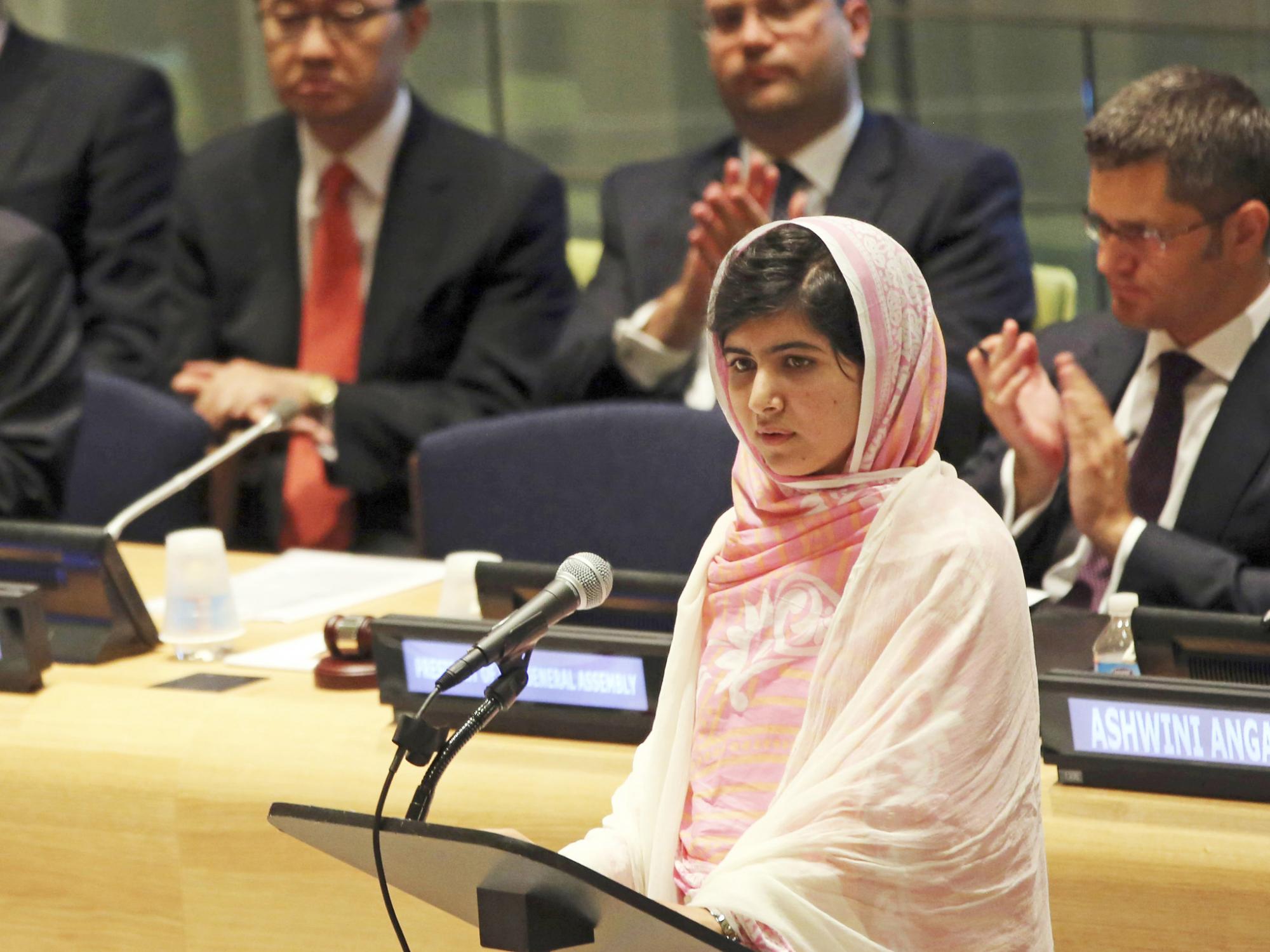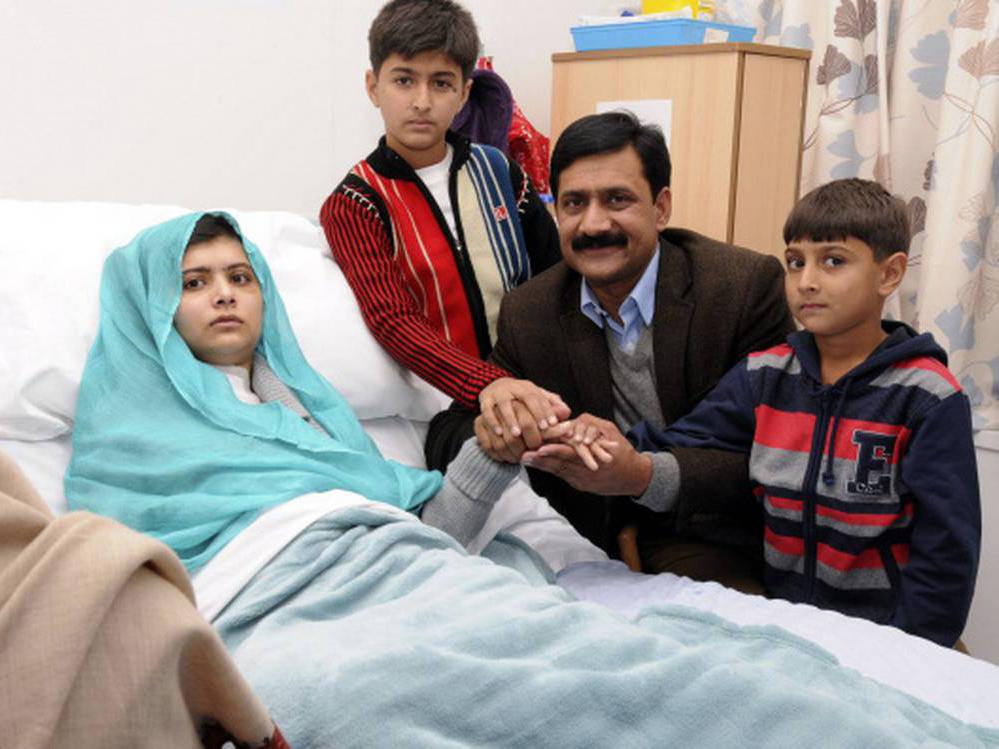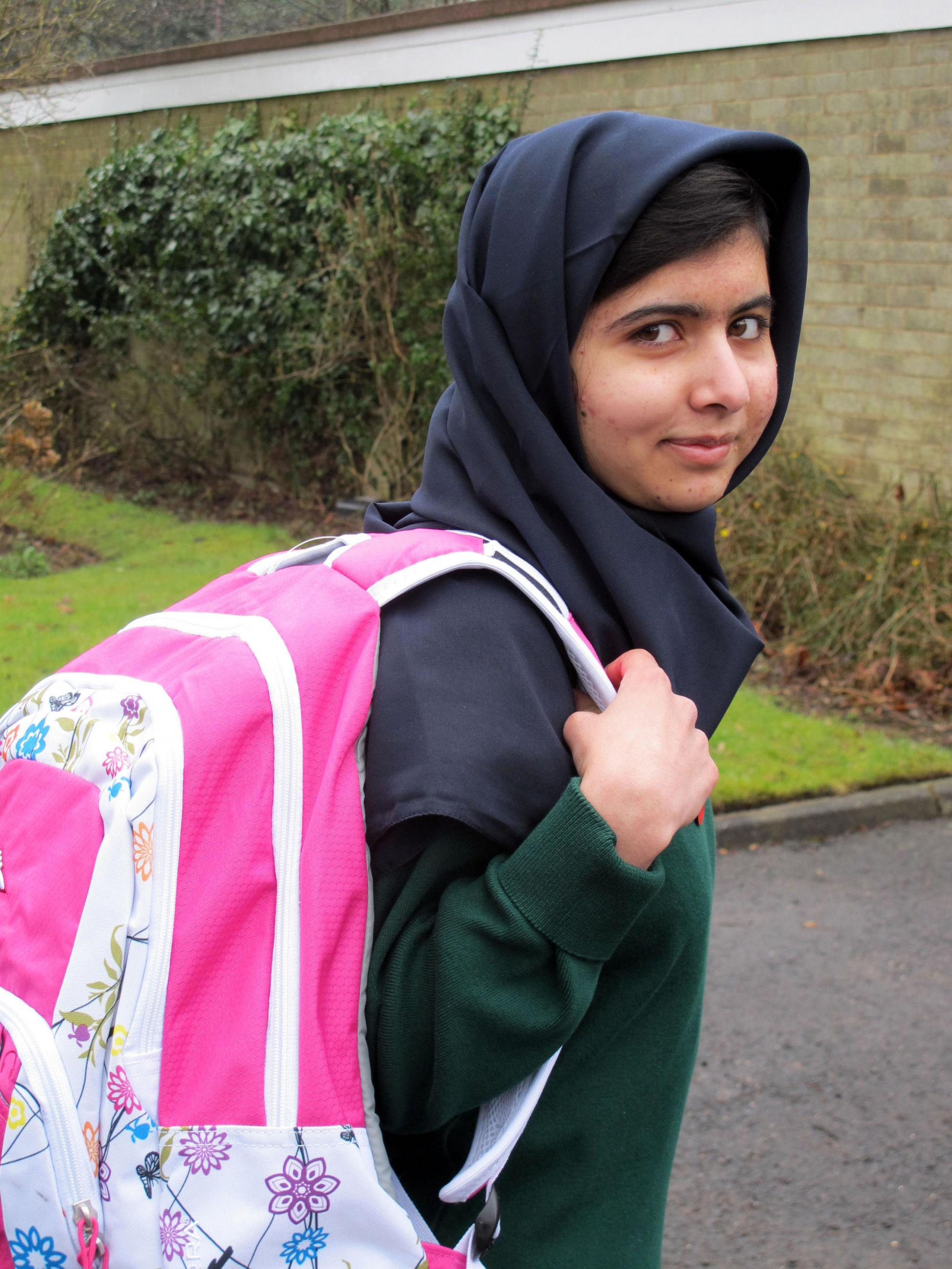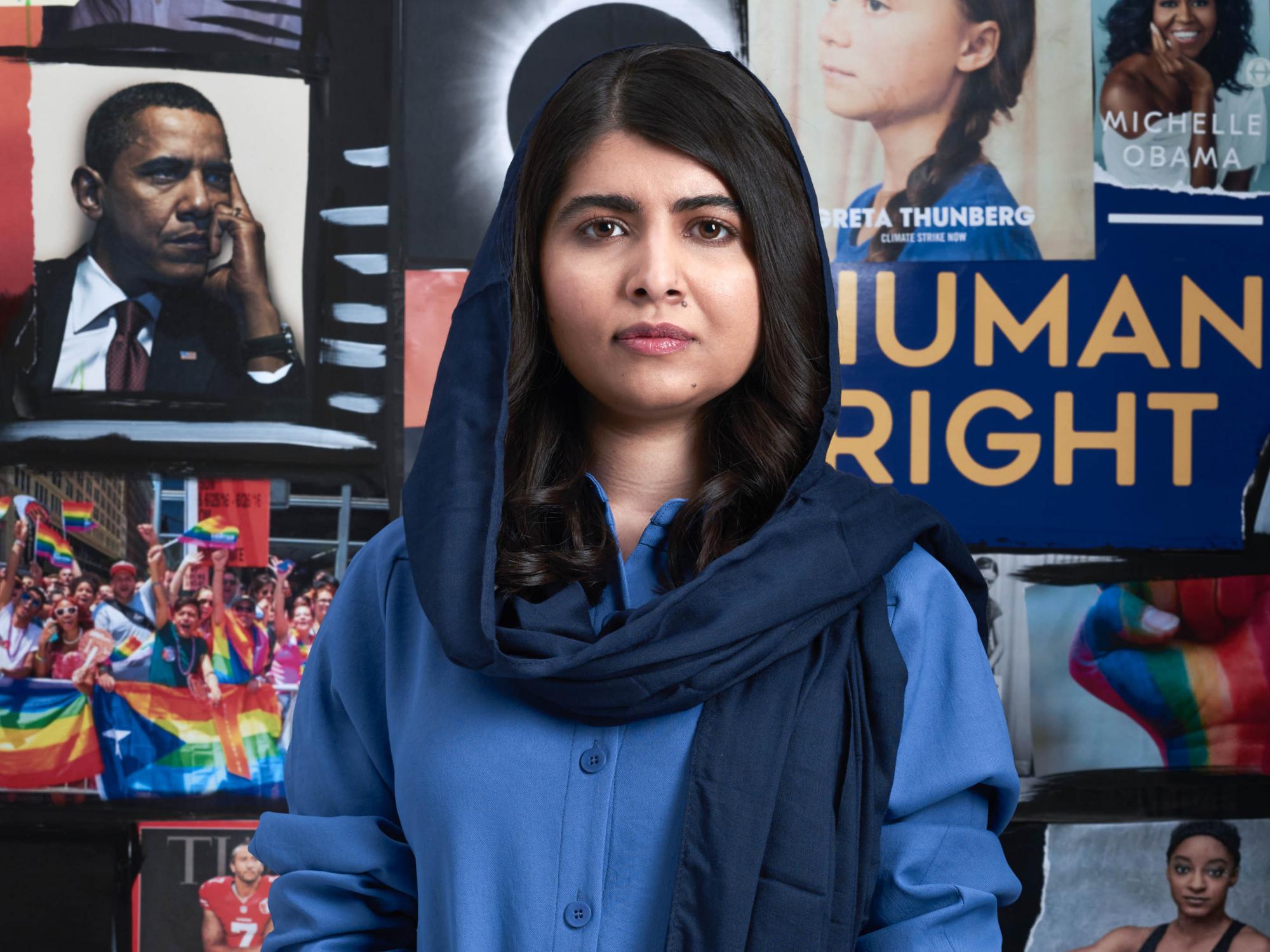
It has only been five years since Pakistani schoolgirl Malala Yousafzai wrote an anonymous diary about life under Taliban rule in north-west Pakistan.
Since then she has been shot in the head by the militants, and has become the youngest person ever to win the Nobel Peace Prize.
Accepting the award in Oslo on 10 December, she said she was "humbled" and proud to be the first Pashtun and the first Pakistani to win the prize. She also joked that she was probably the first winner who still fought with her younger brothers.
Malala Yousafzai first came to public attention through that heartfelt diary, published on BBC Urdu, which chronicled her desire to remain in education and for girls to have the chance to be educated.
When she was shot in the head in October 2012 by a Taliban gunman, she was already well known in Pakistan, but that one shocking act catapulted her to international fame.
She survived the dramatic assault, in which a militant boarded her school bus in Pakistan's north-western Swat valley and opened fire, wounding two of her school friends as well.
The story of her recovery - from delicate surgery at a Pakistani military hospital to further operations and rehabilitation in the UK, and afterwards as she took her campaign global - has been closely tracked by the world's media.
She was discharged from hospital in January 2013 and her life now is unimaginably different to anything she may have envisaged when she was an anonymous voice chronicling the fears of schoolgirls under the shadow of the Taliban.

After initial surgery in Pakistan Malala Yousafzai was sent to hospital in UK to complete her treatment recovery
She was named one of TIME magazine's most influential people in 2013, put forward for the Nobel Peace Prize in 2013, won the European Parliament's Sakharov price for Freedom of Thought and her autobiography "I Am Malala" was released last year, and reversioned for younger audiences.
Malala was only 11 years old when her anonymous diary captivated audiences. She wrote under a pseudonym - Gul Makai, the name of a heroine from a Pashtun folk tale.
Militants destroyed scores of girls schools in the time the Taliban wielded power over the valley. They had an implacable attitude to female education and this was Malala's primary concern.
In January 2009, as the school was closing for winter holiday she wrote: "The girls were not too excited about vacations because they knew if the Taliban implemented their edict [banning girls' education] they would not be able to come to school again. I am of the view that the school will one day reopen but while leaving I looked at the building as if I would not come here again."
She documented the anxiety she and her friends felt as they saw students dropping away from class for fear of being targeted by militants, and as the girls began to attend school in plain clothes not uniform, so as not to draw attention to themselves.
Eventually, Malala and her family, like many thousands of other Swat residents, fled the valley when a government military operation attempted to clear the region of militancy.
Passionate campaigner
Malala consistently received support and encouragement in her activism from her parents. The idea for the blog was even that of her father Ziauddin, who ran a local private school.
In a lengthy profile published in Vanity Fair magazine, one teacher from Swat said that her father "encouraged Malala to speak freely and learn everything she could".
And her identity as the girl blogger from Swat eventually became known as she became more vocal on the subject of the right of girls to education. It is a subject she never ceased to be passionate about even after she returned home once the militants had been run out of Swat.
In 2009 a documentary film was even made about her. Many more honours followed: in 2011 she was nominated for the International Children's Peace Prize by The KidsRights Foundation and in 2012 the Pakistani government awarded her the National Peace Award - subsequently renamed the National Malala Peace Prize - for those under 18 years old.


She even confronted then US special envoy to the region, Richard Holbrooke, urging him to do something about the state of affairs for women who want an education.
When she finally returned to Swat, Malala took advantage of the improved security and went back to school. Malala and her family were the subject of threats and it was on 9 October 2012 that these were borne out.
The Taliban said that they targeted her for "promoting secular education" and threatened to attack her again.
In the end, Malala remains a sschool girl determined to complete her education
The bullet hit Malala's left brow and instead of penetrating her skull, it travelled underneath the skin, the length of the side of her head and into her shoulder.
Amid the outpouring of global support, she was flown to the UK and at the Queen Elizabeth Hospital in the city of Birmingham, she received specialist treatment and had a titanium plate fitted as well as a cochlear implant in her skull to help her hear.
She began attending Edgbaston High School in March and her father has been given a job with the Pakistani consulate in Birmingham for three years.
But she has continued her campaign and taken it around the world.
A fund set up in her name helps children in education around the world. Among other trips, she has travelled to Nigeria, meeting President Goodluck Jonathan to press for action to free the 200 girls held by Boko Haram Islamist militants.
It is all a far cry from the girl who wrote in her diary only four years ago: "Today, I also read my diary written for the BBC in Urdu. My mother liked my pen name Gul Makai. I also like the name because my real name means 'grief-stricken'."